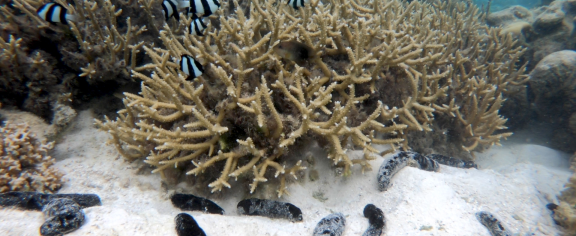2024-04-05
Georgia Tech’s Climate Action Plan outlines mitigation and adaptation strategies for reaching net-zero emissions on campus by 2050 and contributing to global solutions through education and research.
2024-04-04
April is Earth Month with a full calendar of events open to the campus community.
2024-02-27
In a first-of-its-kind study, the researchers discovered that sea cucumbers protect coral from disease.
2024-02-25
The campus community is invited to participate in a week of events that increase awareness of and encourage actions that advance the 17 United Nations Sustainable Development Goals.
2024-01-03
Wildfires in Africa are fueled by a feedback loop mechanism as aerosols interact with the climate
2023-11-16
School of Earth and Atmospheric Sciences researchers find dangerous sulfates are formed, and their particles get bigger, within the plumes of pollution belching from coal-fired power plants.
2023-11-09
Rachel Moore spent nearly 50 days in one of the most remote places on Earth, collecting ice cores; the research has implications for climate change predictions and searching for signs of life on icy worlds.
2023-08-28
The BBISS Graduate Fellows Program provides graduate students with enhanced training in sustainability, team science, and leadership in addition to their usual programs of study.
2023-10-02
Emmy Hughes, a Ph.D. candidate in the School of Earth and Atmospheric Sciences at Georgia Tech has been selected as a recipient of the Achievement Rewards for College Scientists (ARCS) Scholar Foundation award.
2023-10-09
By lassoing lizards, putting tiny chips on their legs, and tracking them for three years, Georgia Tech’s James Stroud revealed why species often appear unchanged for millions of years despite Charles Darwin’s theory of constant evolution.


